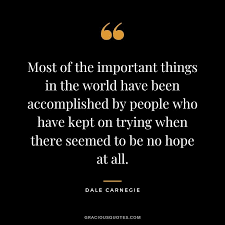From Head to Heart
Last week we discussed the value of experiential versus intellectual knowledge, as we develop a personal relationship with the Lord. Each day, we should grow in our knowledge of the Lord (2 Pet. 3:18). When we do, we begin to move God from our head to our heart.
How do we do that? By reading God’s Word. This is His primary way of communicating with us. God’s Word is “living and active and full of power [making it operative, energizing, and effective]. It is sharper than any two-edged sword, penetrating as far as the division of the soul and spirit [the completeness of a person], and of both joints and marrow [the deepest parts of our nature], exposing and judging the very thoughts and intentions of the heart.” (Hebrews 4:12, Amplified).
Although we may not hear God audibly, God does speak to us through His Holy Spirit. HIS Spirit speaks to OUR spirit. How well we hear Him is determined by, “are we trying to hear” (are we tuned in?) and “are we trying to listen” (is the volume turned up?)
The Spirit speaks
The Holy Spirit has always existed. As the third person of the Godhead, He was present during the creation of the world (Genesis 1:2). However, in the early Scriptures, the Spirit does not emerge as a “distinct personality”.
In the Old Testament, the Holy Spirit was most commonly designated as “of God” or “of the Lord”. The Holy Spirit appears as God’s agent of creation, a mode of God’s interacting with humans (Gen. 6:3), God’s agent of revelation (Gen. 41:38; Num. 24:2), and a mode of empowering select leaders of God’s people such as Moses and Joshua (Num. 11:17-29; 27:18).[1]
In the books of Judges, Samuel, and Kings, supernatural activities of the Spirit begin to appear. We see God’s Spirit now emerging upon significant individuals such as judges, prophets, and kings. He becomes an energizing power, temporarily equipping leaders for physical prowess and military victory.
In the writings of the prophets, additional insights about the Holy Spirit are disclosed as they share a future time when the Spirit would empower all God’s followers through the creation of a “new spiritual community”. Most notable of these prophetic descriptions of the Holy Spirit’s ministry are found in Isaiah (Isa. 32:15; 34:16) and Ezekiel (Ezek. 36:24-27). One of the most notable is Joel 2:28-32, which Peter quotes at Pentecost (Acts 2:17-21).
In the New Testament, the Holy Spirit begins to dominate the theology and experience of the major New Testament witnesses. Throughout the gospel, the work of the Holy Spirit is acknowledged and celebrated. It begins with the Immaculate Conception (Luke 1:35), the anointing of Jesus (Matt.3:11) and concludes with the resurrection of Christ by God’s Spirit (Rom. 8:11).
It’s Personal Now
We are so fickled! We are easily impressed by the hottest fad, the newest technology, and the latest pop-culture entertainment! How foolish we are if we desire the things this world has to offer (1 John 2:17). None can compare with God and His gift of the Holy Spirit.
Unlike the Old Testament saints who experienced a temporary anointing of God’s Spirit, we now have Deity dwelling within us, 7 by 24, 365 days a year (2 Tim. 1:14). It’s personal now! The Holy Spirit is speaking! Are we listening?
[1] Evangelical Dictionary of Biblical Theology, “Holy Spirit”, 344.










